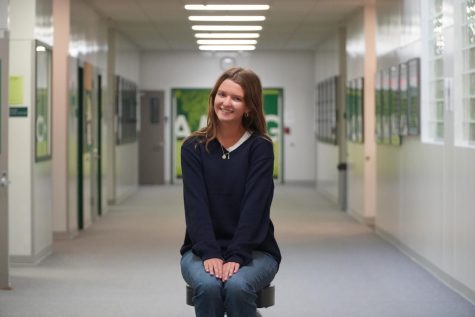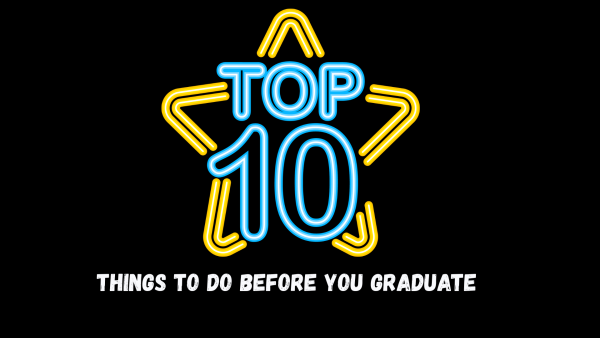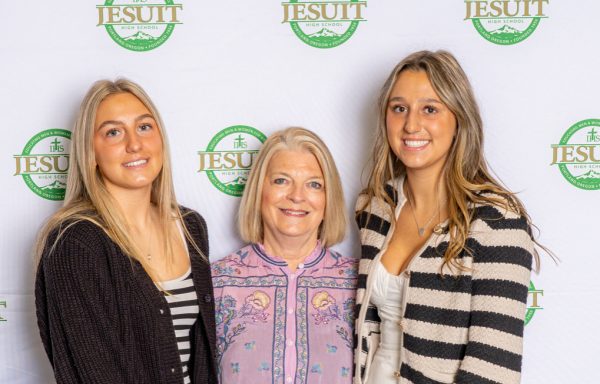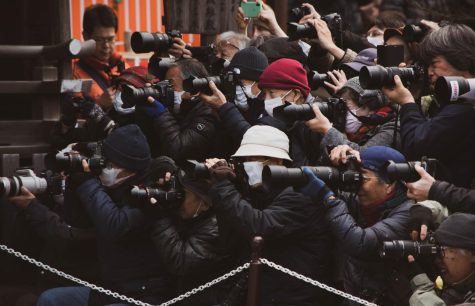Just be Here: The Growing Importance of Presence in a Media-Charged Society
Photo by Priscilla duPreez on Unsplash
One setback of ubitiquous technology such as iPhones is a decreasing lack of presence.
With the 2:45 bell signaling the end of 6th period, an instantaneous reaction ripples through the classroom— backpacks unzipped and phones rapidly pulled out of captivity, ready to flood students’ tired brains with texts and posts.
Students’ days spent with an iPad by their sides are quickly transformed into an afternoon that consists of homework alongside listening to a podcast, watching TikTok, catching up on the news, or continuing to stare at their Canvas to-do lists.
We live in a media-charged society that has spiked since COVID-19 lockdowns forced people to rely on technology to entertain and educate themselves during the seemingly constant state of chaos.
Technology serves as a fantastic outlet for education, entertainment, and convenience. However, our constant connection to stimulating information sources leads to concern throughout wellness and health communities: How does this affect our ability to be truly present in the moment with others, ourselves, and the world?
Echoed in Pinterest quotes, songs, podcasts, books, and advice sessions from “carpe diem” to “be present,” the message of living in the moment has been instilled in society for generations.
Social media influencers may preach that presence exists in a set time, such as a 10-minute meditation found somewhere in the depths of YouTube. However, true presence ultimately comes down to simply prioritizing full attention and intention to a situation, relationship, or time.
To health teacher Ms. Niki Brooks, there is a disturbing, albeit not surprising, effect that technology has on our ability to be truly present in the world.
“Our brains are getting hardwired. That is the scientific marketing that social media giants are using,” Brooks said.
Brooks observes the potential consequences of a 1-to-1 environment on her students’ attention and interest.
“When students receive a notification on their iPads or are on an app that piques their interest, the distracting stress response is instantaneous,” Brooks said. “Similarly, it can cause students to lose their introspection in class.”
This causes an obvious academic imbalance as students will not be fully engaged in class discussions or lessons. Brooks also highlighted the lack of presence in social situations that she’s observed as a result of our tech-charged society.
“In a concrete state of development, we create connection through observation,” Brooks said. “But, if our faces are always on a screen, we don’t have time to recognize observations such as nonverbal cues, and therefore, we won’t understand the social implications of those nonverbal cues.”
Brooks juxtaposed this social effect with characteristics of relationships that exemplify the concept of presence.
“Full, undivided attention to relationships and conversations requires discomfort,” Brooks said. “You’re going to make mistakes, and you’re going to say weird things. The verbal processing outlawed in real time is more difficult than texting. With texting, you can think about your ideas and grammar. But when people are having a dialogue, they have to put effort into being an active listener and responder. The art of listening is lost when we only primarily engage with others behind a screen.”
Brooks pointed out another reason for how heavy media consumption can halt genuine social connection as a result of the presence of exaggerated, falsified, or toxic relationships depicted throughout the world of media.
“Observing relationships on social media and TV shows us a flawed scope of the human experience,” Brooks said.
Similar to Brooks, theology teacher Mr. Russell Fiorella discussed how integral being present is to developing relationships.
“One of the most important ingredients to fostering and nurturing loving relationships is attentiveness,” Fiorella said. “The unfortunate challenge of our age is confronting the presence of phones, iPads, computers, and televisions that relentlessly compete for our attention and by implication, our capacity to become fully human in and through building authentic relationships with self, others, and God. Without attentiveness and the depth in relationships we gain from it, we are bound to lead superficial lives.”
Junior Catie Dice revealed how she has noticed growth in her relationships after prioritizing attentive and meaningful time spent with those important to her.
“All of the best experiences of my life have been times where technology was not present and everyone was just focused on where they were physically and emotionally,” Dice said. “Making the most of every moment is so important to me and the best way to do that is by eliminating distractions like phones and social media so we can really appreciate each other’s raw presence.”
Echoing Dice’s viewpoint, Fiorella went on to elaborate on the internal benefits of intentionally taking time to be present.
“Whenever I find myself feeling blue or stagnant or restless or lonely, it’s usually when I get too caught up with my phone or when I veg too long on the couch. On the other hand, I feel most attuned to the present when I’m reading a good book, writing, or just thinking in solitude, or when I open myself up fully to learning more about another person whom I desire to be closer to or sharing a meal with a long-time friend,” Fiorella said.
Fiorella then explained how these practices can produce life-long change.
“If you take the time, discipline, and intention to engage in being present, you would be able to notice exponentially more meaning in life,” Fiorella said. “It’s all around us. Focusing on presence offers depth in relationships, which can lead to a realization that a lot of the superficial things we worry about, often results of social media, can be illusions to what really matters.”
Fiorella’s perspective reveals that the greatest solution to regaining a sense of presence in our connected world comes down to mindfulness. Brooks summed up the true importance of this broad and often misinterpreted concept.
“The biggest piece for mindfulness is recognizing that mindfulness doesn’t have to come in the form of a strict time like yoga or a guided meditation,” Brooks said. “The idea that you are taking time to reflect on who you are right now, who you were a day ago, and who you want to be tomorrow is all that mindfulness should be. Being intentional with your actions after this practice is where it all comes together.”
A mindfulness-based lifestyle doesn’t have to completely exclude technology. Brooks explained that when used with balance and intention, social media and technology will function as the valuable resource it is meant to be.
“Social media and technology have obvious limitations, but all of it comes down to discerning how we are spending time and utilizing technology resources to ultimately benefit total wellness,” Brooks said.
Total wellness can be hard to balance in our fast-paced world. Choosing to reflect on your day before bed instead of watching one last TikTok, engaging in attentive conversations with a friend, or practicing gratitude are everyday habits that have the power to lead to life-changing personal and social growth. Ultimately, actively reflecting on who and where you are in this moment is the springboard to internal wisdom and success.
“We only get 24 hours in a day, and one body in a lifetime. How are you going to spend time taking care of your full self?” Brooks said.









